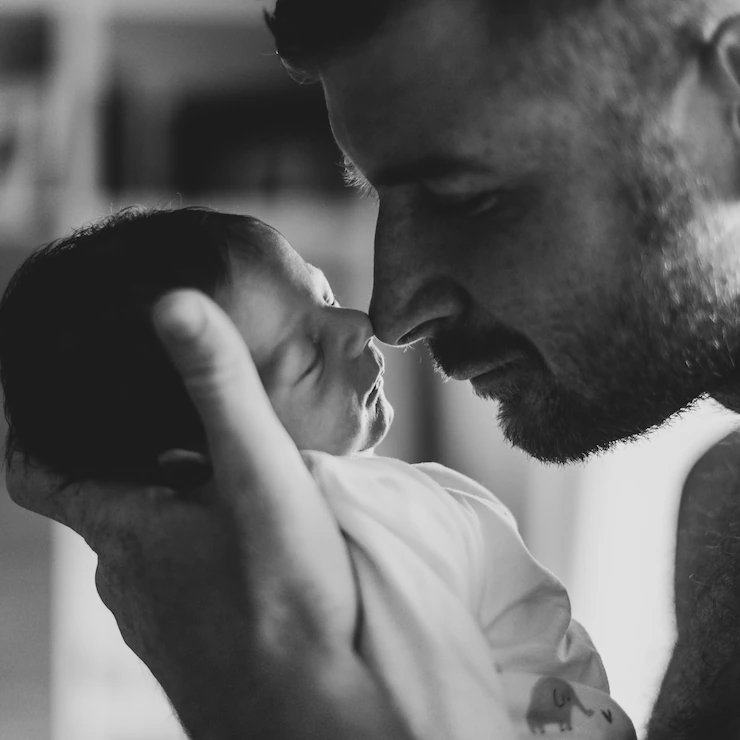The arrival of a new baby is a transformative and joyous experience for both parents. While much attention is often focused on the challenges faced by new mothers, it is equally important to recognize the unique challenges that new fathers encounter as they navigate the journey of fatherhood. From adjusting to changing roles and responsibilities to balancing work and family life, new fathers face a range of challenges that require understanding and support. Let’s explore some of the unique challenges faced by new fathers and how we can address them.
- Changing Roles and Identity: Becoming a father brings a significant shift in a man’s identity and role. The transition from being solely a partner to being a caregiver and role model can be overwhelming. New fathers may grapple with a sense of loss of freedom, uncertainty, and pressure to live up to societal expectations of being a “perfect” father. Acknowledging and discussing these feelings can help new fathers navigate this transformative phase more effectively.
- Lack of Paternity Leave and Workplace Support: Many fathers face challenges in balancing work and family responsibilities due to limited paternity leave policies and workplace support. The lack of sufficient time off to bond with their newborn and adjust to their new roles can lead to stress and feelings of guilt. Employers and policymakers need to recognize the importance of paternity leave and flexible work arrangements to support new fathers in their transition.
- Postpartum Mental Health: Postpartum mental health challenges are often associated with mothers, but research shows that new fathers can also experience depression, anxiety, and stress. The pressure to provide and protect their family, coupled with sleep deprivation and changes in routine, can contribute to these mental health issues. It is crucial to raise awareness about paternal mental health and provide resources for new fathers to seek support and treatment if needed.
- Feeling Excluded or Overlooked: In parenting spaces, new fathers may sometimes feel excluded or overlooked, particularly in settings that primarily cater to mothers. This can lead to a sense of isolation and limited opportunities for peer support and sharing experiences. Creating inclusive spaces and support networks that acknowledge and value the role of fathers can help address this challenge and foster a sense of belonging.
- Balancing Work and Family Life: Finding a balance between work and family life is a significant challenge for new fathers. The pressure to provide for their family may lead to longer working hours and limited time for involvement in childcare and bonding activities. Employers can play a role by offering flexible work arrangements, encouraging work-life balance, and fostering a supportive work culture that recognizes the importance of fatherhood.
- Developing Parenting Skills: Like new mothers, new fathers also embark on a learning journey to develop their parenting skills. From diaper changing and soothing techniques to understanding the emotional and developmental needs of their child, new fathers may sometimes feel uncertain and lack confidence. Providing resources, parenting classes, and opportunities for fathers to connect with experienced parents can help build their parenting skills and boost their confidence.
- Navigating Gender Stereotypes: Gender stereotypes and societal expectations can create challenges for new fathers. The pressure to conform to traditional gender roles may discourage fathers from engaging in caregiving activities or expressing vulnerability. Challenging these stereotypes and promoting a more equitable view of parenting can empower new fathers to embrace their caregiving roles fully.
- Maintaining Healthy Relationships: The arrival of a new baby can strain relationships as attention and focus shift towards the child. New fathers may struggle to maintain a healthy balance between their partner, their child, and their own needs. Open communication, empathy, and shared responsibilities within the partnership can help strengthen the relationship and ensure both parents feel supported and valued.
In conclusion, new fathers face unique challenges as they navigate the transformative journey of fatherhood. By recognizing and addressing these challenges, we can create a supportive environment that empowers fathers to actively participate in caregiving, embrace their new roles, and foster healthy relationships with their children. It is crucial for society, employers, and individuals to acknowledge the significance of new fathers’ experiences and provide the necessary support to help them thrive in their parenting journey.










